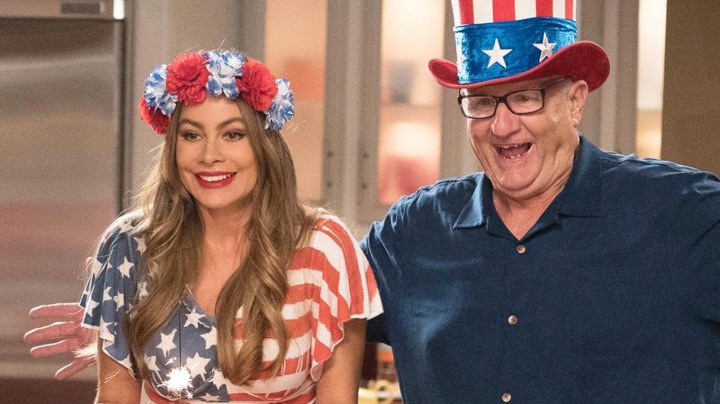Study Finds Immigration Storylines in Media Can Positively Affect Perceptions

Courtesy of Modern Family Instagram
What we see in the media does affect us. We know this. And a recently released study confirms that fact is also true in the case of immigrant storylines and characters; the positive representations in scripted narrative shows lead to positive interpretations in day-to-day real life.
The University of Southern California’s Norman Lear Center is behind the research, which builds upon a previous study from two years back. Part of the data comes from the responses of a sample of 940 American adults who watched one or three more shows featuring immigration storylines (Orange is the New Black, Superstore, Madam Secretary). A content analysis of more than 129 characters across 97 episodes of 59 shows that aired between Aug. 2018 and July 2019 was conducted first.
“Those who saw the immigration storyline were more likely to take certain actions related to immigration and had more inclusive attitudes toward immigrants than those who did not,” the study reports. More exposure also equates to more action: The more of these stories participants say, “the more likely they were to have taken immigration-related actions.”
Conservative viewers, however, felt manipulated, or as if the storyline somehow detracted from their own freedom. The study explains that “these feelings were associated with less inclusive immigration attitudes, knowledge about immigration, and immigration behaviors.”
There are some issues with the study, however: Latinidad is categorized as a race, rather than an ethnicity. What about Black Latinx folks? Asian Latines? The many and varied ethnic groups of Middle Eastern people are also not considered.
That media influences viewers’ attitudes is not new: Cultivation theory was first ideated by George Gerbner back in the ‘60s, and academics have been studying it or something like it ever since. Mainstreaming is a function of cultivation theory: It’s the idea that people who watch four-plus hours of media a day can conflate what they see on screen with reality. If you watch a lot of Law & Order SVU, for example, you might perceive crime rates as higher than they actually are.
There’s more to Cultivation Theory, of course. But the point of it, and this new study, is that we must accept that the media influences our lives. And whether or not these effects are positive or negative is subjective, and the results depend on the content—but we can confidently say there is a connection.
When looking to push forward more authentic, less trope-riddled and a better reflection of the many realities that exist in terms of the experience of immigrants, minorities, and other oppressed peoples, the media can do a lot to either hinder or uplift that mission.